Blog & News
Our Latest Articles
In Our Blog & News, we share insightful articles on eco-friendly landscaping, current trends, helpful maintenance tips, and the latest in sustainable outdoor practices.
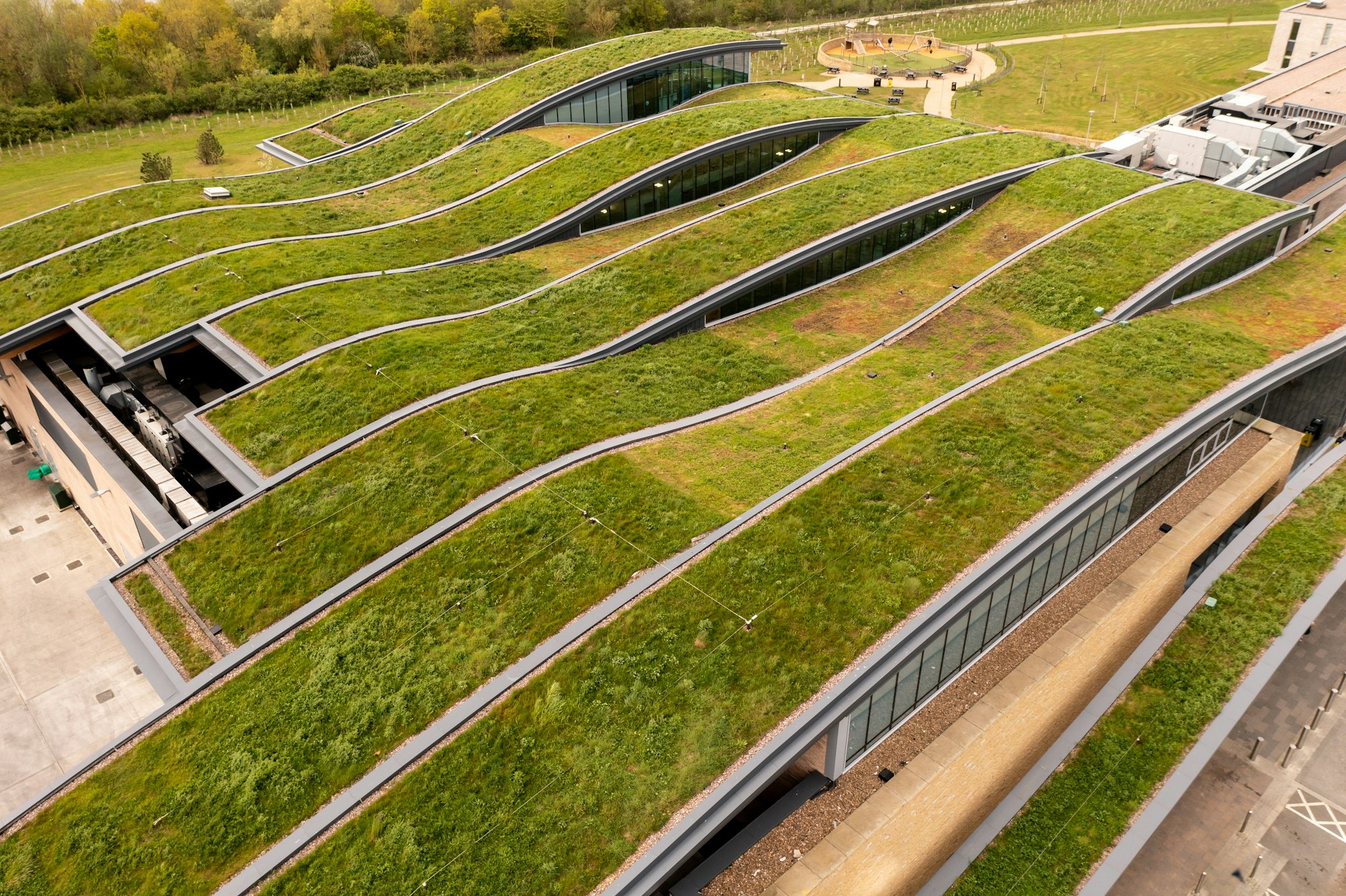
Sustainable Landscaping Practices for a Greener Future
As homeowners increasingly look for ways to reduce their environmental footprint, sustainable landscaping has become more important than ever. In this article, we explore some eco-friendly practices you can incorporate into your outdoor space.
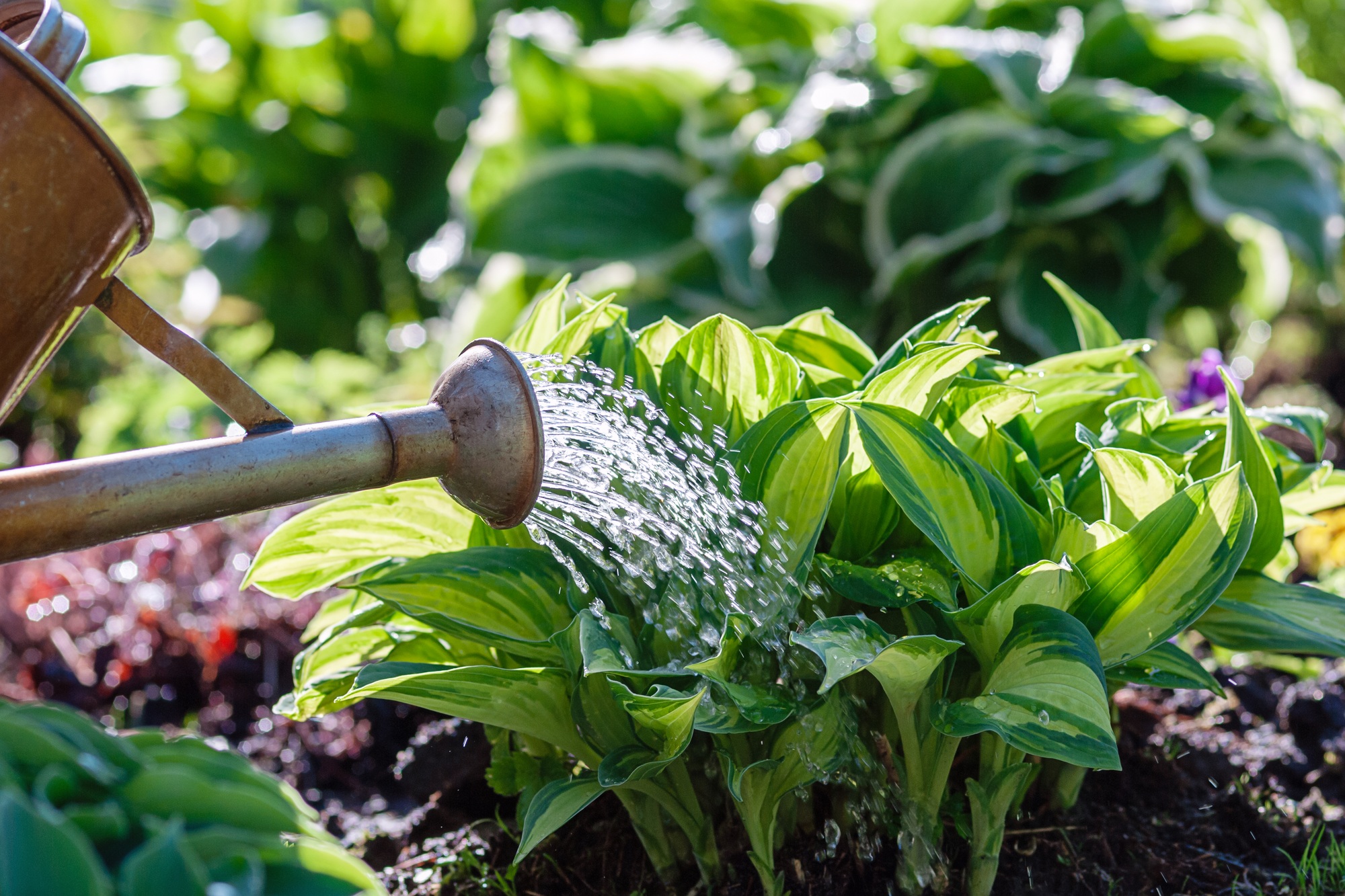
How to Create a Water-Wise Garden in Ontario
Water conservation is a critical issue for homeowners in Ontario, especially during hot summers. This article provides practical tips for creating a water-efficient garden that thrives in our climate.

Why Eco-Friendly Landscaping is More Affordable Than You Think
Many homeowners assume that eco-friendly landscaping is expensive, but that’s not always the case. In this article, we break down how making sustainable choices can actually save you money in the long run.

Seasonal Landscaping Tips for Year-Round Beauty
Maintaining a beautiful landscape requires year-round care. In this article, we offer seasonal landscaping tips to keep your outdoor space looking great through every season.

The Benefits of Organic Lawn Care
Many homeowners rely on chemical treatments to keep their lawns lush, but organic lawn care is a safer and more sustainable alternative. This article explores the benefits of choosing organic options for your lawn care.
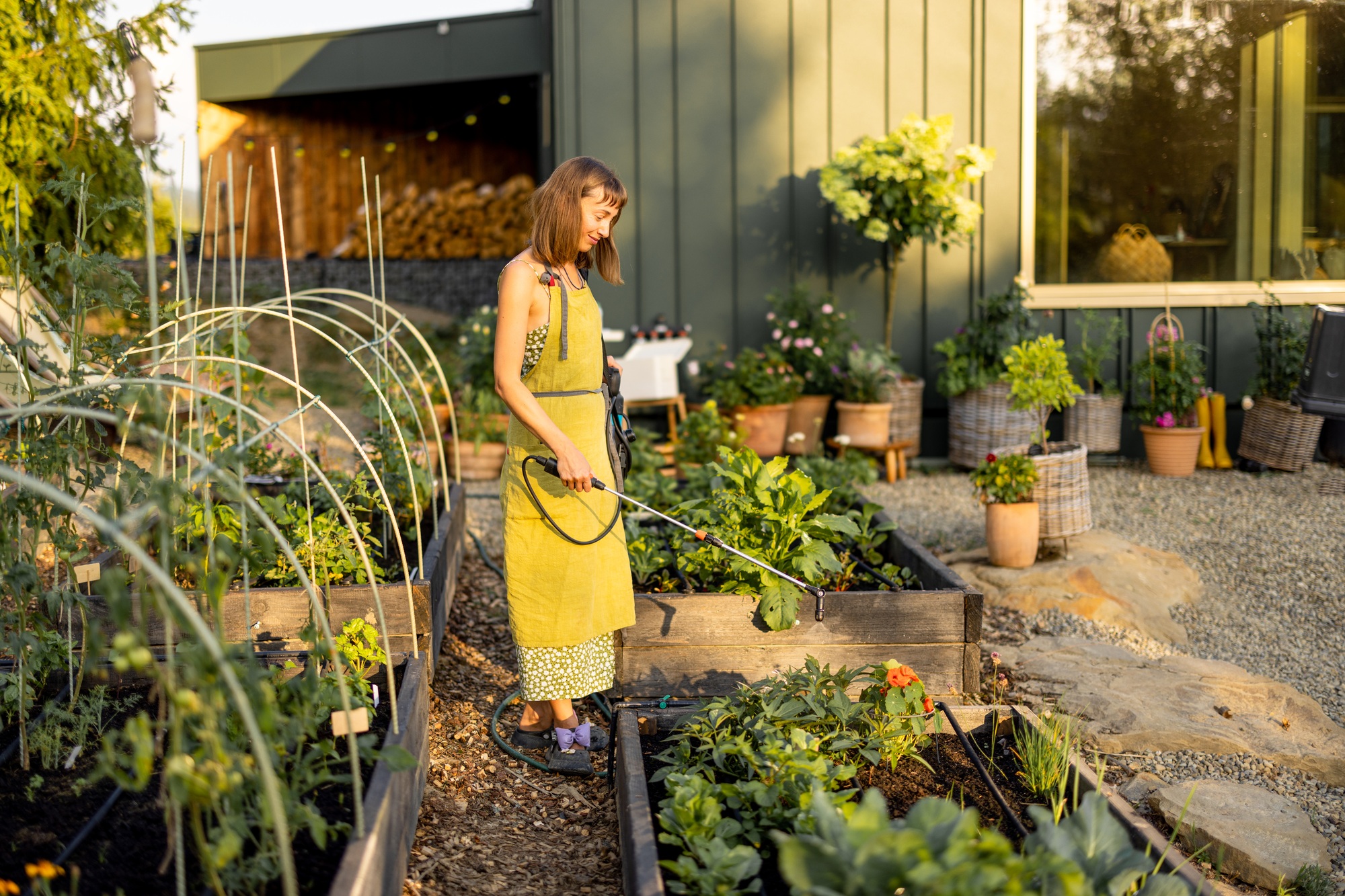
How to Maintain Your Garden Without Harmful Pesticides
Pesticides are commonly used in gardens, but they can harm the environment and wildlife. This article provides natural alternatives for pest control that are safer for your garden and the planet.
Sustainable Landscaping Practices for a Greener Future
Jan 1, 2025
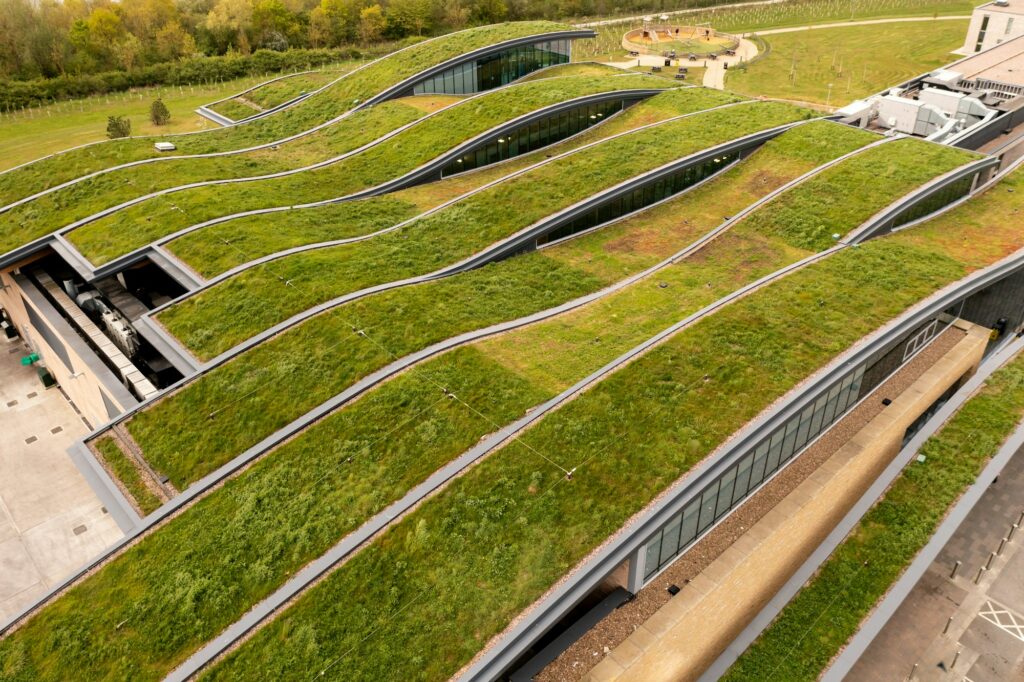
Maintaining a beautiful landscape requires year-round care. In this article, we offer seasonal landscaping tips to keep your outdoor space looking great through every season.
As more homeowners become aware of their environmental impact, sustainable landscaping is gaining popularity. Landscaping, when done thoughtfully, can contribute to a healthier planet by reducing water consumption, minimizing chemical use, and supporting local ecosystems. A sustainable yard is not just about aesthetics; it’s about creating an outdoor space that thrives naturally with minimal environmental disruption.
One of the most effective ways to build a sustainable landscape is by incorporating native plants. Native species are well-adapted to the local climate, which means they require less water, fertilizers, and pesticides. Unlike non-native plants that often struggle to survive without excessive care, native plants flourish in their natural environment, reducing the need for artificial interventions. Beyond their practical benefits, they also provide a natural habitat for birds, butterflies, and beneficial insects, contributing to biodiversity.
Another essential aspect of sustainable landscaping is water conservation. Traditional lawn irrigation can be wasteful, but there are smarter ways to keep plants hydrated. Installing a rain garden is an excellent way to capture and filter rainwater runoff. These specially designed gardens prevent excess water from overwhelming stormwater systems while helping the soil retain moisture. Using rain barrels to collect water from downspouts is another effective method that allows homeowners to reuse rainwater for irrigation.
Mulching is a simple yet powerful technique that enhances soil health while reducing the need for chemical treatments. By applying a layer of organic mulch, such as wood chips or leaves, around plants, homeowners can help the soil retain moisture, suppress weeds, and gradually enrich the ground as the mulch decomposes. Composting is another valuable practice that turns kitchen scraps and yard waste into nutrient-rich organic matter. Instead of relying on synthetic fertilizers, which can harm the environment, compost naturally improves soil fertility and plant health.
A well-planned sustainable landscape also considers lawn size and maintenance. Traditional grass lawns demand significant amounts of water, mowing, and chemical treatments. Reducing the size of a lawn and replacing it with drought-tolerant ground covers, ornamental grasses, or rock gardens can significantly lower maintenance requirements. Not only does this save time and resources, but it also creates a more diverse and visually appealing yard.
Sustainable landscaping is more than just a trend—it’s a responsible way to design outdoor spaces that benefit both homeowners and the environment. By making mindful choices, such as using native plants, conserving water, and improving soil health naturally, it’s possible to create a beautiful and eco-friendly landscape that thrives for years to come.
How to Create a Water-Wise Garden in Ontario
Jan 14, 2025

Water conservation is a critical issue for homeowners in Ontario, especially during hot summers. This article provides practical tips for creating a water-efficient garden that thrives in our climate.
Water conservation is an important issue, especially in Ontario, where summers can bring periods of drought and water restrictions. A water-wise garden allows homeowners to maintain a vibrant, thriving outdoor space without excessive irrigation. Designing a landscape that requires minimal watering not only conserves resources but also saves money on water bills while contributing to a more sustainable environment.
To start, selecting the right plants is crucial. Drought-tolerant species, such as lavender, coneflowers, and black-eyed Susans, are excellent choices because they can withstand dry conditions with little additional watering. Native plants are particularly effective since they have adapted to the local climate over time, making them resilient to fluctuations in rainfall.
Beyond choosing hardy plants, improving soil quality is another key factor in creating a water-efficient garden. Soil rich in organic matter retains moisture better, so adding compost or organic mulch helps keep water in the soil for longer periods. Mulch not only prevents rapid evaporation but also insulates the soil, reducing temperature fluctuations that can stress plants.
Smart irrigation techniques play a crucial role in water conservation. Instead of traditional sprinklers, which can lead to overwatering and runoff, drip irrigation delivers water directly to the base of plants. This method ensures that water reaches the roots without waste, making it one of the most efficient ways to keep plants hydrated. Watering during the early morning or late evening further minimizes evaporation, allowing moisture to penetrate the soil deeply.
Rainwater harvesting is another effective strategy for reducing reliance on municipal water. Installing a rain barrel allows homeowners to collect runoff from their roof and store it for later use. This harvested water can be used for irrigation, reducing dependency on treated water and lowering water bills in the process.
A well-planned water-wise garden is not only environmentally friendly but also resilient and easy to maintain. By choosing drought-tolerant plants, improving soil health, implementing efficient irrigation methods, and utilizing rainwater collection, homeowners can enjoy a lush and beautiful garden while significantly reducing their water usage.
Why Eco-Friendly Landscaping is More Affordable Than You Think
Jan 14, 2025

Many homeowners assume that eco-friendly landscaping is expensive, but that’s not always the case. In this article, we break down how making sustainable choices can actually save you money in the long run.
Many people assume that eco-friendly landscaping is an expensive luxury, but in reality, it can be more cost-effective than traditional landscaping in the long run. By reducing water consumption, minimizing chemical use, and incorporating low-maintenance plants, homeowners can enjoy significant savings while also benefiting the environment.
One of the biggest financial advantages of eco-friendly landscaping is the reduction in water bills. Conventional lawns and non-native plants require frequent watering, especially during dry seasons. By switching to drought-resistant plants, native species, and more efficient irrigation systems, homeowners can drastically cut down on their water usage. Rain gardens and rain barrels further help conserve water by capturing and utilizing natural rainfall instead of relying solely on municipal water sources.
Chemical treatments, such as synthetic fertilizers and pesticides, are another hidden cost in traditional landscaping. Over time, the expense of buying these products adds up, not to mention the potential health risks they pose to families, pets, and local wildlife. Organic landscaping eliminates the need for harsh chemicals by focusing on natural soil health, composting, and integrated pest management. By improving soil quality with organic matter, plants become stronger and more resistant to pests and diseases, reducing the need for costly treatments.
Another long-term financial benefit of eco-friendly landscaping is reduced maintenance costs. Native plants and drought-resistant landscaping features require less mowing, trimming, and general upkeep. Replacing a portion of a lawn with stone pathways, perennial gardens, or xeriscaping elements not only lowers the need for mowing but also adds aesthetic and functional value to a yard. Over time, these low-maintenance features reduce labor and energy costs associated with lawn care.
Beyond cost savings, eco-friendly landscaping can increase property value. Homebuyers are increasingly looking for sustainable and low-maintenance yards, making green landscaping a desirable feature when selling a home. A well-designed, environmentally conscious yard sets a property apart and can contribute to a higher resale price.
The idea that eco-friendly landscaping is costly is a misconception. While there may be an initial investment in sustainable features, the long-term savings on water, maintenance, and chemical treatments far outweigh the upfront costs. By making smart, sustainable choices, homeowners can enjoy a beautiful, eco-conscious yard while keeping expenses under control.
(The other three articles will follow this format, discussing seasonal landscaping tips, organic lawn care, and natural pest control methods.)
Seasonal Landscaping Tips for Year-Round Beauty
Jan 14, 2025

Maintaining a beautiful landscape requires year-round care. In this article, we offer seasonal landscaping tips to keep your outdoor space looking great through every season.
A thriving landscape requires attention and care throughout the year. Each season brings different challenges and opportunities, and understanding how to adapt your landscaping practices accordingly will keep your yard looking its best. By making seasonal adjustments, you can ensure that your outdoor space remains beautiful, healthy, and environmentally friendly all year long.
Spring: Refresh and Prepare
Spring is the season of renewal, making it the perfect time to refresh your landscape. Start by clearing away debris left behind by winter, such as fallen leaves and branches, to allow new growth to emerge. Aerate your lawn to improve soil drainage and introduce essential nutrients by applying organic compost or mulch. This is also the best time to plant native flowers, trees, and shrubs since the moderate temperatures give them a strong start before summer’s heat sets in.
Regular pruning of trees and bushes helps encourage new growth while maintaining a neat appearance. Consider introducing pollinator-friendly plants such as lavender, coneflowers, and milkweed to attract bees and butterflies.
Summer: Maintain and Conserve
The warm summer months can put stress on your lawn and garden, making proper maintenance essential. Watering deeply but infrequently encourages strong root growth, helping plants withstand dry conditions. To prevent excessive evaporation, water early in the morning or late in the evening, and use mulch around plants to retain moisture.
Mowing at a slightly higher setting shades the soil and prevents it from drying out too quickly. This season is also ideal for monitoring for pests and diseases—using natural solutions such as neem oil or introducing beneficial insects like ladybugs can help maintain balance without resorting to harmful chemicals.
Fall: Strengthen and Plant
Autumn is a critical time for preparing your yard for the colder months ahead. Raking fallen leaves and composting them enriches your soil naturally. Planting trees and shrubs during this season gives them a chance to establish strong roots before winter.
Overseeding your lawn helps fill in bare spots and improves grass density, while applying an organic fertilizer boosts soil health. As temperatures cool, reducing the frequency of mowing and watering will help your plants adjust to the changing season.
Winter: Protect and Plan
Winter may seem like a quiet season for landscaping, but there are still ways to protect your yard. Wrapping delicate plants in burlap shields them from harsh winds and freezing temperatures. Avoid walking on frozen grass to prevent damage.
This is also a great time to plan ahead for next year’s landscaping projects. Researching eco-friendly techniques, designing new garden layouts, and preparing for spring plantings ensures you start the next season with a clear vision for your outdoor space.
By following these seasonal landscaping tips, you can keep your yard vibrant and healthy throughout the year while reducing environmental impact. Thoughtful, seasonally appropriate care will help you maintain a beautiful, eco-conscious landscape that thrives in every season.
The Benefits of Organic Lawn Care
Jan 14, 2025

Many homeowners rely on chemical treatments to keep their lawns lush, but organic lawn care is a safer and more sustainable alternative. This article explores the benefits of choosing organic options for your lawn care.
A lush, green lawn is the pride of many homeowners, but maintaining it shouldn’t come at the cost of environmental health. Traditional lawn care methods often rely on synthetic fertilizers and pesticides, which can contaminate soil and water while harming beneficial organisms. Organic lawn care offers a sustainable alternative that promotes long-term soil health, supports biodiversity, and creates a safer outdoor space for families, pets, and wildlife.
Healthier Soil, Healthier Lawn
One of the biggest benefits of organic lawn care is improved soil health. Instead of relying on synthetic fertilizers, organic alternatives such as compost, aged manure, and natural soil amendments provide essential nutrients while enhancing soil structure. Healthy soil retains moisture better, reducing the need for frequent watering.
Aerating your lawn annually also helps loosen compacted soil, allowing roots to grow deeper and absorb nutrients more effectively. Over time, organic practices encourage the development of beneficial microorganisms that naturally improve soil fertility.
Water Conservation and Reduced Waste
Organic lawn care emphasizes water conservation by promoting deep-rooted, drought-resistant grasses. Watering deeply but less frequently strengthens root systems, making your lawn more resilient during dry periods. Using mulch around garden beds helps retain moisture and reduce evaporation.
Collecting rainwater for irrigation and using drip irrigation systems further minimizes water waste while keeping your lawn hydrated. With proper care, an organic lawn requires significantly less water than one dependent on chemical treatments.
Natural Pest and Weed Control
Chemical herbicides and pesticides can have lasting negative effects on the environment. Organic methods take a more holistic approach to pest and weed management. Overseeding with native grasses and maintaining a thick, healthy lawn prevents weeds from taking over by outcompeting them.
For pest control, introducing beneficial insects like ladybugs and praying mantises helps keep harmful insect populations in check. Companion planting with herbs such as basil, thyme, and mint can naturally repel pests while adding beauty and fragrance to your yard.
Safer for Families, Pets, and Wildlife
A major advantage of organic lawn care is its safety. Chemical pesticides and fertilizers can pose health risks to children, pets, and local wildlife. By switching to natural alternatives, homeowners can create a safe outdoor environment where everyone can enjoy the yard without exposure to harmful toxins.
Long-Term Sustainability
While transitioning to organic lawn care may take time, the long-term benefits far outweigh the initial effort. Over time, soil health improves, water usage decreases, and your lawn becomes more self-sustaining. By adopting organic methods, you contribute to a healthier ecosystem while still enjoying a green, thriving lawn.
Making the shift to organic lawn care is a step toward a more sustainable future. With the right approach, you can achieve a beautiful lawn that benefits both your home and the environment.
How to Maintain Your Garden Without Harmful Pesticides
Jan 14, 2025

Pesticides are commonly used in gardens, but they can harm the environment and wildlife. This article provides natural alternatives for pest control that are safer for your garden and the planet.
Keeping your garden healthy without relying on chemical pesticides is not only possible but also beneficial for the environment, pollinators, and long-term soil health. Natural pest control methods help maintain a thriving garden while reducing the risk of contamination and ecosystem disruption.
Encourage Beneficial Insects
Not all insects are harmful—many actually help keep pest populations under control. Ladybugs, lacewings, and praying mantises feed on common garden pests like aphids and caterpillars. Planting nectar-rich flowers such as marigolds, sunflowers, and daisies attracts these beneficial insects and promotes a balanced ecosystem.
Companion Planting for Natural Pest Repellence
Certain plants naturally deter pests when grown together. For example, planting basil near tomatoes repels tomato hornworms, while marigolds help prevent aphid infestations. Herbs like rosemary, thyme, and lavender discourage common garden pests while adding fragrance and beauty to your space.
Organic Sprays and Natural Repellents
Homemade organic sprays offer an effective alternative to chemical pesticides. Neem oil, diluted with water, is a powerful deterrent for many insects while remaining safe for plants and beneficial creatures. A garlic and chili pepper spray creates a natural repellent that prevents pests from feeding on leaves.
Another simple yet effective solution is a soapy water spray, which suffocates soft-bodied insects like aphids and spider mites. Applying these natural remedies regularly helps keep pests under control without introducing toxins into your garden.
Physical Barriers and Traps
Using physical barriers is an effective way to prevent pest infestations. Floating row covers protect vegetable gardens from caterpillars and beetles while still allowing air and sunlight to reach plants. Sticky traps can capture flying pests like whiteflies and fungus gnats.
For slug and snail control, placing crushed eggshells or diatomaceous earth around plants creates a rough surface that deters them from crossing.
Maintain a Strong, Resilient Garden
A healthy garden is naturally more resistant to pests. Keeping plants well-spaced improves airflow and reduces the risk of fungal diseases. Removing dead leaves and debris eliminates hiding spots for pests. Crop rotation prevents soil-borne pests from becoming a recurring issue.
By using these natural pest control methods, homeowners can protect their gardens without relying on harmful chemicals. A well-maintained, eco-friendly garden supports biodiversity and ensures long-term sustainability while keeping plants strong and productive.
Switching to pesticide-free gardening not only benefits the environment but also creates a safer space for your family and the wildlife around you.
Learn about what we do to make a keener, greener future.
Featured Projects
Urban Oasis
Here we created a small city backyard into a lush, green retreat, complete with a custom water feature and vertical garden, maximizing space and serenity.
Sustainable Sanctuary
Our goal for this project was a landscape design that incorporates native plants, rainwater harvesting, and eco-friendly materials, blending beauty with environmental consciousness.
Modern Elegance
We accomplished designing a contemporary landscape with clean lines, minimalist plantings, and striking features like a fire pit and outdoor lighting, combining sophistication with functionality.
Frequently Asked Questions
Explore our client questions and find out how easy it is to transform your outdoor space with our expert team.
We offer a wide range of landscaping services, including sod installation, grass removal, rock and stone design, garden maintenance, lawn care, and both residential and commercial landscaping.
The timeline depends on the scope of the project. Smaller projects like sod installation may take a day or two, while larger landscaping projects can take several days to weeks. We’ll provide a timeline estimate during the consultation.
Yes, we offer free consultations to assess your landscaping needs and provide a detailed estimate. We will discuss your preferences and vision for your outdoor space.
We serve Newmarket, Ontario, and the surrounding areas. Whether you’re in the city or nearby communities, we’re ready to help with your landscaping needs.
Yes, we offer ongoing lawn care and maintenance services to keep your landscape looking beautiful year-round. This includes regular mowing, fertilization, and seasonal clean-ups.
Yes, we are fully insured to ensure that both our team and your property are protected during the course of the work.
Absolutely! Our team can help design your outdoor space to fit your vision. We offer expert advice on plants, layout, and features to create the perfect environment for your home or business.
Follow us
Stay Connected, Stay Inspired:
Follow Us for Your Daily Dose of Green!


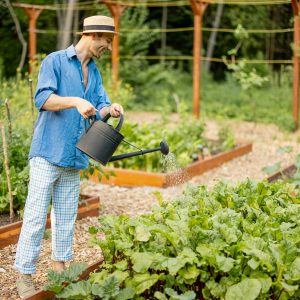



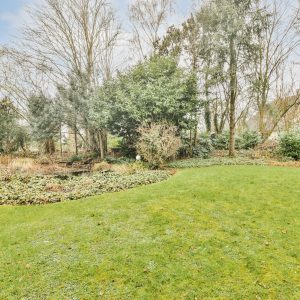
Our Contact
Let's Talk About
Your Next Project
We’d love to hear about your landscaping project! Please fill out our contact form with as many details as possible so we can better understand your vision and how we can help bring it to life.
Our Contact
- Newmarket, ON
- +1 234 567 8902
- kandg905@gmail.com
Where passion meets purpose in every outdoor space we transform
Contact Information
- Newmarket, ON
- +1 234 567 8902
- kandg905@gmail.com
Site Map
Copyright © 2025 Keen & Green Landscaping
All Rights Reserved

